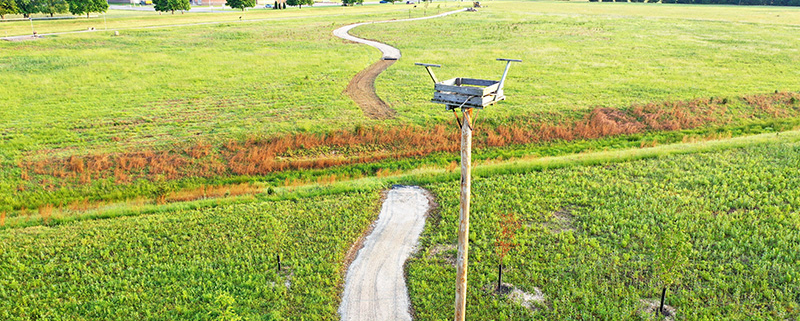When I was writing my book, Strategic Corporate Conservation, I wanted to address greenwashing as a topic of importance to any NGO or stakeholder engaging with the private sector. My research at the time found few pertinent scholarly papers on the topic and relied mostly on Julie Bowen’s book After Greenwashing: Symbolic Corporate Environmentalism and Society. Fast forward a few years and even a cursory search for the topic delivers recent research and articles from bodies as diverse as a high school newspaper, financial institutions, the U.S. federal government, the EU, the New York Times and, most, recently a satirical piece by Joel Makower, which I’ll return to later in this piece.
Suffice it to say, greenwashing has re-entered the room.
A laundry list of false claims
The term “greenwashing” has moved far from its first appearance in our lexicon when, in 1986, Jay Westerveld, an environmental activist, used it to describe how the hospitality industry promoted reusing towels in hotel rooms as an environmental benefit rather than the cost-saving exercise it actually is. Today “greenwashing” is no longer just about misleading claims from industry, but has many definitions based on different perspectives – business models, products, marketing and communications. “Greenwashing” has become so broad that it has its own taxonomy. The ubiquity of the term has also led to it being used indiscriminately and lazily about any environmental act or initiative undertaken by the private sector, as this recent opinion piece from Nature for Climate points out.
The danger and attraction of greenwashing is that customers, anxious about the state of the planet, are primed to believe green claims about products, with one study finding that “over half (57%) of consumers …believed that greenwashed claims were a reliable source of information about a company’s eco-practices.” The effectiveness of false and vague green claims means that corporate marketing departments will continue to deploy them. And the growing pressure on companies to report on their environmental performance across a suite of industry and financial initiatives (itself a positive development) can lead to exaggerations, “mis-statements and omissions,” which fall within the realm of greenwashing.
In parallel to the rise of ‘green’ marketing and misleading statements and omissions, environmental activist groups are poised and ready to throw cold soup on all sorts of declarations by companies regardless of their veracity.
Throwing out the baby with the bathwater
What does all this mean for the private sector and their partners seeking to address impacts on nature and deliver benefits for climate, biodiversity and communities? Of the 12 items listed in Joel Makower’s satire “How to Greenwash Like a Pro,” nine are actions that would be commendable for any company seeking to act for nature: make bold commitments, tell stories, engage employees, use science, join a coalition, be creative, plant trees, think local and be relentless.
Working with the private sector to connect corporate ambition to site-based action, we at WHC have again and again seen the power of employee engagement and community connection to drive and support real and sustainable action. We understand the power of partnerships and coalitions through efforts like Business for Nature or industry-specific initiatives like the Global Concrete and Cement Association to create shared learning and allow a collective policy voice to be raised. We’re seeing the emergence of the Science Based Targets Network (SBTN) and the Taskforce on Nature-related Financial Disclosures (TNFD) point the way to science-based approaches for assessing and prioritizing biodiversity action. And finally, when companies work to overcome the many internal and external structural barriers to operationalizing nature-focused goals into action, they must get creative, and storytelling to internal and external audiences can be an effective tool in that effort.
In this new world of increased attention to business and increased claims of greenwashing, are we throwing the baby out with the bathwater when we declare that every corporate sustainability action is greenwashing when what we really need is more and better action on sustainability? Are we denying the reality of what it takes to drive sustainability through a company that consists of corporate sustainability officers but also accountants, government affairs and marketing? Are we creating barriers to progress when we should be creating routes to success?
We must remember that the work to save and restore nature and slow and halt climate change takes place across a spectrum of effort and advocacy from left-flank radical tactics that attack the system (condemned by some but lauded by others) to technocratic approaches that work within it (also condemned by some and lauded by others.) It’s along this spectrum that claims of greenwashing will always lie and differences will always be aired.
What both ends of the spectrum and the vast middle can agree on is that at heart, greenwashing is saying all the ‘right’ things but doing absolutely nothing. This is the sin of greenwashing that none of us should accept.
In commentary on his article, Joel Makower framed the way forward. He suggested “companies that acknowledge their challenges, and the work still to be done, while being humble about their progress, even when it’s not brag-worthy” will be seen as more authentic and credible. He echoed another commenter Mikhail Davis, who said, “The companies that are for real [in sustainability] are the ones who talk about what is still to be done, not what they’ve already done.”
At a recent Business and Nature forum hosted by GreenBiz at Verge 22, it was noted by one of the speakers that the private sector is in a period of transition and transformation with respect to its relationship with the natural world. It was noted that along the journey of this transition misfires in communications, ambitions and efforts will happen while the new rules are still being established. But, the real focus should be on the direction of travel and the hoped for destination rather than the stops and starts along the way.
So, as the private sector continues to engage in reporting, disclosing and even storytelling around nature and biodiversity, let’s support those who are being honest about the challenges of the transition, train the lens of our attention on the acts being done and understand that for many the journey to a nature positive world is just starting.
As for statements companies make related to their work with WHC, see Telling true and accurate stories for what companies can and can’t say about WHC.


